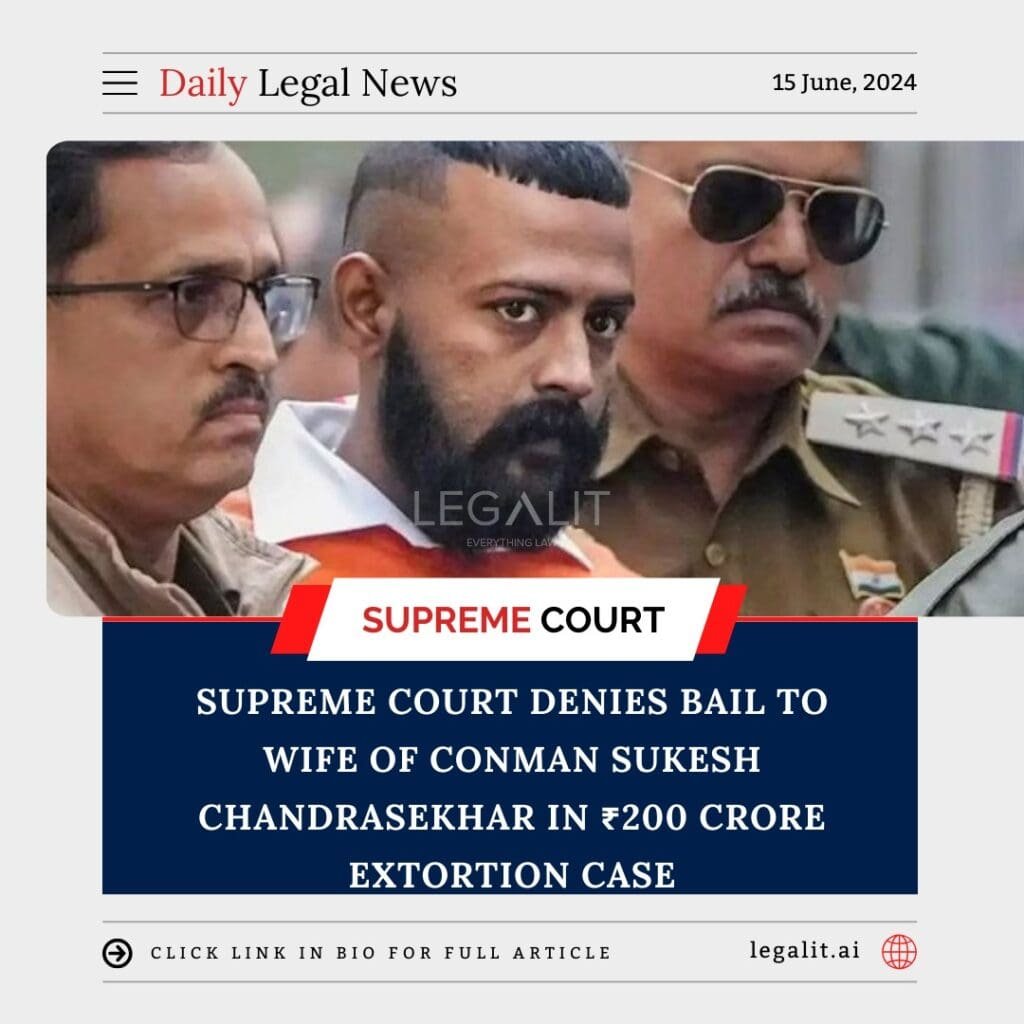
In a high-profile ruling, the Supreme Court of India has refused to grant bail to Leena Maria Paul, the wife of notorious conman Sukesh Chandrasekhar, in connection with the ₹200 crore extortion case. This decision underscores the gravity of the charges and the court’s stance on severe financial crimes.
Case Background
Leena Maria Paul, an actress, and Sukesh Chandrasekhar, a well-known conman, are accused of orchestrating an elaborate extortion scheme involving high-profile individuals and businesses. The couple allegedly extorted vast sums of money by posing as government officials and offering fake promises of favorable outcomes in legal and regulatory matters.
Legal Proceedings
- Previous Arrests and Investigations:
- Sukesh Chandrasekhar has been embroiled in multiple legal cases over the years, involving fraud, money laundering, and impersonation. Leena Maria Paul was arrested in 2021 in connection with these activities.
- The Enforcement Directorate (ED) and Delhi Police’s Economic Offences Wing have been investigating the couple, revealing extensive financial networks and fraudulent transactions.
- Court’s Observations:
- The Supreme Court, while denying bail, noted the serious nature of the allegations against Leena Maria Paul. The bench emphasized that the evidence presented by the prosecution pointed to her active involvement in the extortion scheme.
- The court highlighted that granting bail in such cases could undermine the integrity of the investigation and potentially allow the accused to tamper with evidence or influence witnesses.
- Prosecution’s Case:
- The prosecution argued that Leena Maria Paul was a key participant in the extortion network, facilitating transactions and helping to launder the extorted funds. They presented detailed financial records and communications between Paul and the victims, underscoring her culpability.
- They also pointed out that the extortion activities were conducted under the guise of political and bureaucratic influence, making the crime not only a financial fraud but also an abuse of the public trust.
Implications of the Ruling
This ruling has significant implications for high-profile financial crime cases in India. It reaffirms the judiciary’s commitment to addressing severe financial misconduct with the seriousness it deserves. The refusal of bail sends a strong message that the legal system will not tolerate attempts to evade justice through financial or political influence.
Broader Context
The case of Sukesh Chandrasekhar and Leena Maria Paul has drawn considerable media attention due to its high-profile nature and the extent of the alleged crimes. The couple’s activities have exposed vulnerabilities in India’s financial and legal systems, prompting calls for stricter regulations and more robust enforcement mechanisms.